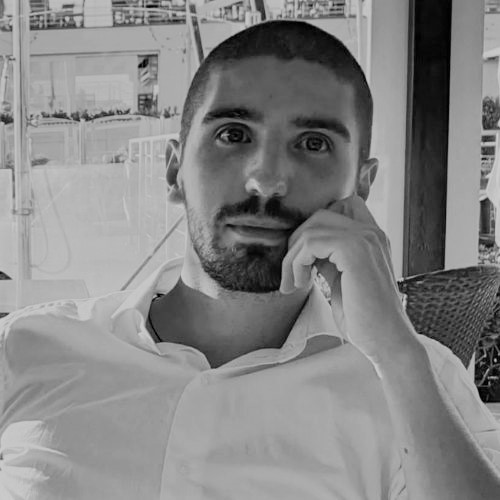Put public policies into practice, involve citizens, innovate but with responsibility. From the Circular Economy Hotspot 2023 in Dublin, held from 29 May to 1 June, comes a strong and clear message: for the circular transition ambition is not enough, we must move as soon as possible to the implementation phase.
Since the Irish summit, which saw a large international participation, it is the same "bubble" of the circular economy that invokes the pin to go outside, spread to new continents, and go beyond the vision, to the necessary targets and to that symbolism of the "dissolves and solidifies" which risks reducing circularity to a mere exercise in alchemical hermeticism.
Beyond the vision: Ireland tries to go into execution
"In Ireland we must move from ambition to the implementation of public policies. We need to move from a narrow focus on waste to a more holistic circular economy approach". So began her speech Laura Burke, Director General of the Irish Environmental Protection Agency, recalling that the country is stationary at a rate of circularity - the share of material recovered and reused in the economy compared to the total use of resources - of 2% against an EU average of 11.7%.
How to improve the result? Thanks to the new Circular Economy and Miscellaneous Provisions Act, signed in July 2022, Ireland is supporting its circular economy policies with a legislative measure that first of all confirms the blocking of new exploration of fossil fuels and imposes on national governments - present and future - to adopt a national circular economy policy to be updated regularly and to take account of the needs of both socially and economically disadvantaged communities and people with disabilities. "On 1 February 2024 we will also launch a deposit system. In this way, we aim to recycle more than 80% of the more than 1.9 billion bottles and cans placed on the market every year. This should also encourage manufacturers to abandon multipack solutions," explains Ossian Smyth, Minister of the Department of Public Expenditure and Reform, and Delegate on the circular economy, to Materia Rinnovabile.
But the strategy does not stop at packaging. "We are not doing well in the reuse of demolition materials in construction - continues Smyth - We must improve our licensing system, without stopping at the regulatory part. And at the same time give information to companies on how they can do it and maybe set up intermediaries and exchange centers for building materials in the city".
Europe: the struggle between reality and ambition must not forget the citizens
It is good to reiterate that the invitation to move to an implementation phase arrived from the stage of the Circular Economy Hotspot 2023 (of which Materia Rinnovabile is media partner, ed) does not hide the abandonment of new goals, to be seen on the rise, aware that in an exact year the new European elections will be held. " We must be careful not to let reality fall away from ambition. Implementation should be a priority in the next policy cycle, especially for batteries, ecodesign for sustainable product regulation, packaging" said Aurel Ciobanu Dordea, Director General at DG Environment, European Commission, who stresses the importance of starting to address the interaction of circular economy and climate change legislation. "We do not yet have a definite position: this is something that we are still deepening, but I believe that this will be a priority for the next five years".
The exhortation to go beyond the political cycle in the field of ecological transition, ensuring continuity through bipartisan or multilateral agreements with a "ruthless prioritisation", also comes from Hugh Coughlan, coordinator of the Eastern and Midlands Waste Region, one of Ireland’s three waste management regions.
Moreover, the role of local government is crucial in unlocking the full potential of the circular economy. "We need a collaborative approach. Citizens are citizens, not just consumers," said Iain Guilland, CEO of Zero Waste Scotland and President of ACR+. To initiate cities into a circular transition, citizens need to be integrated and not just involved, explained Anna Davies, Professor of Geography, Environment and Society at Trinity College Dublin, which, in addition to the need for further investment, wanted to warn against the "scalability" trap: local contexts have specific needs and suffer from pre-packaged solutions.
This is also demonstrated by the work of the Ellen MacArthur Foundation, present in Dublin with Joshua Newton, Cities Activation Manager: "It’s wonderful to participate in the Dublin Circular Economy Hotspot and share the insights of the Circular Cities Declaration and our new circular neighborhood articles. In addition to some inspiring examples of the circular economy in Dublin and elsewhere, the hotspot reminded us that the circular economy is not about making incremental changes to our linear system. It is a fundamental transformation towards a more regenerative and resilient economy".
New Circular Economy Hotspots, attention to barriers to innovation
"In the Irish context, some of the main barriers to circularity are the fact that, of course, cost savings can be achieved by implementing circular strategies in the production process, for example by changing packaging, but if you really want to incorporate the circular economy into your business model, you need to change it radically. This requires internal investment. So, for companies making the transition, ROI is not always immediate," explains to Materia Rinnovabile Geraldine Brennan, Director for Circular Economy at Irish Manufacturing Research and Design Manager at Circuléire, the national platform for the circular economy. "This does not mean that there are no savings and opportunities if you start from scratch in the design of the circular economy, but if it is a transition, the costs depend on the system in which you have already invested. We must therefore undertake a process of transformation that takes time. Some companies have set up risk funds for research and development. Others have to justify the fact that they are taking money from part of the company to try to change. So, I think it’s about supporting businesses, and that’s why government funds are so important because they help people 'test the waters' and create the circular economy"
The new Circular Economy Hotspots were also announced in Dublin. Lagos (Nigeria) and Santiago (Chile) - first editions in Africa and Latin America respectively - will be held this year, while Wales, Canada, South Africa and Brazil will host the 2024 editions. "The Circular Economy Hotspot network is apolitical and not for profit," said Freek van Eijk, CEO Holland Circular Hotspot "With this type of network, you can really build bridges between actions from the top down and actions from the bottom up. These events create momentum, they can be real milestones to finalize actions".
Image: Dublin, Paul Costello (Unsplash)



